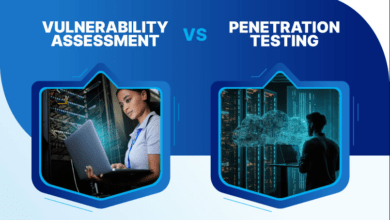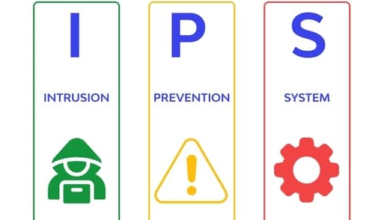Why You Need F Secure Router Check Now ?

Introduction
In today’s digital age, safeguarding your network is paramount. Imagine a tool that not only fortifies your internet security but also offers peace of mind with just a few clicks. Enter F Secure Router Check by ‘F Secure‘. This groundbreaking tool delves deep into your router’s defenses, uncovering vulnerabilities that could compromise your entire network. As cyber threats evolve, staying one step ahead is crucial. F Secure Router Check provides a comprehensive security assessment, ensuring your data remains protected. Don’t leave your network’s security to chance. Discover the power of proactive protection with F Secure Router Check and secure your digital world effortlessly.
Table of Contents
What is F Secure Router Checker?

F Secure Router Check is a powerful online tool provide by F Secure , designed to enhance the security of your home network. This tool scans your router for vulnerabilities, specifically targeting the Domain Name System (DNS) settings. By identifying potential risks, it ensures that your internet traffic is not being redirected to malicious websites by cybercriminals.
Regular use of f secure router check can detect issues like DNS hijacking, which can compromise your personal data and online activities. The tool provides an easy-to-use interface that offers a comprehensive security assessment, helping users to mitigate risks proactively. With detailed insights and recommendations, f secure router check empowers you to take immediate action, fortifying your router against potential threats and ensuring a secure online experience. Stay vigilant and regularly check your router settings to maintain the integrity of your network and protect your digital life.
How Does an Internet Router Work?
1- Receives Incoming Data:
- The internet router receives data packets from the modem, which is connected to your ISP (Internet Service Provider).
2- Examines Data Packets:
- It inspects the packets to identify their destination IP addresses.
3- Utilizes Routing Tables:
- Using internal routing tables, the router determines the most efficient path to deliver these packets to the correct device within the local network.
4- Directs Traffic:
- It directs each data packet to the appropriate device, such as a computer, smartphone, or smart TV, through a process known as packet switching.
5- Implements Security Measures:
- The internet router employs firewalls and Network Address Translation (NAT) to protect internal devices from external threats, creating a secure barrier against potential cyber-attacks.
6- Ensures Smooth Connectivity:
- By managing data flow and providing security, the router ensures a seamless and secure internet experience for all connected devices.
What is DNS Hijacking?
DNS hijacking, also known as DNS redirection, is a cyber attack where malicious actors manipulate the Domain Name System (DNS) settings of a router or a computer. This manipulation redirects your internet traffic to fraudulent websites, often designed to steal personal information or distribute malware. Cybercriminals exploit vulnerabilities in your network, gaining unauthorized access to your DNS settings.
Once hijacked, users may be unknowingly directed to counterfeit websites, even when typing in the correct URL. This can lead to significant risks such as data breaches and identity theft. The attackers can intercept login credentials, financial information, and other sensitive data.
To combat DNS hijacking, it is essential to regularly use tools like f secure router check. These tools scan your router for potential vulnerabilities and ensure your DNS settings are secure. By staying vigilant and proactive, you can protect your network from the perils of DNS hijacking and maintain the integrity of your online activities.
Other Common Threats to Your Router Security

Routers, the unsung heroes of our connected lives, face myriad threats that can compromise your network’s integrity. Understanding these risks is essential for robust network security. Here are several common threats to be aware of:
- Firmware Vulnerabilities: Outdated firmware can be a significant security hole. Hackers exploit these vulnerabilities to gain unauthorized access to your router, often without your knowledge.
- Weak Passwords: Many users stick with default or simple passwords, making it easier for attackers to guess or brute-force their way into your network. Always use strong, unique passwords.
- Malware Infections: Malware can infiltrate your network through various means, including phishing emails or infected downloads. Once inside, it can spread to other devices, compromising your entire network.
- Outdated Encryption Standards: Using obsolete encryption protocols like WEP can leave your network vulnerable to eavesdropping and unauthorized access. It’s crucial to use the latest encryption standards, such as WPA3.
- Misconfigured Settings: Incorrect router settings can create security loopholes. Regularly checking and updating these settings ensures that your network remains secure.
- Physical Tampering: Physical access to your router can allow an attacker to reset or reconfigure it. Ensure your router is in a secure location.
How to Improve Your Router Security
Securing your router is paramount in safeguarding your network against cyber threats. Here are several steps you can take to enhance your router security:
- Update Firmware Regularly: Manufacturers frequently release firmware updates to patch security vulnerabilities. Regular updates ensure your router has the latest protections.
- Use Strong Passwords: Replace default passwords with complex, unique ones. A robust password should include a mix of letters, numbers, and special characters to thwart brute-force attacks.
- Enable WPA3 Encryption: Ensure your router uses WPA3 encryption, the most advanced security protocol available. This helps protect your network from unauthorized access.
- Disable Remote Management: Turn off remote management features to prevent external access to your router settings. This reduces the risk of cyber intrusions from outside your home network.
- Implement Network Segmentation: Create separate networks for different types of devices. For example, use a guest network for visitors. This limits access to your main network, enhancing overall security.
- Monitor Connected Devices: Regularly check which devices are connected to your network. Use tools like F Secure Router Check to identify and mitigate potential vulnerabilities.
- Utilize a Firewall: Enable the firewall on your router to monitor and control incoming and outgoing traffic. This adds an additional layer of protection against malicious activities.
Are Public Wi‑Fi Connections Safe?

Public Wi-Fi connections, while convenient, pose significant security risks. These networks, often found in cafes, airports, and hotels, are usually unsecured, making them prime targets for cybercriminals. One of the primary dangers is the possibility of man-in-the-middle attacks, where an attacker intercepts communication between your device and the internet. This allows them to eavesdrop, steal sensitive information, or inject malicious content.
Another risk is the presence of rogue hotspots. These are fake Wi-Fi networks set up by attackers to trick users into connecting. Once connected, your data can be easily captured and exploited. Additionally, malware distribution is a common threat on public Wi-Fi. Cybercriminals can use unsecured connections to spread malicious software, which can then infiltrate your device and compromise your data.
To mitigate these risks, avoid accessing sensitive information, such as online banking or personal accounts, over public Wi-Fi. Instead, use a Virtual Private Network (VPN) to encrypt your internet traffic, adding an extra layer of security. Regularly update your device’s software to protect against vulnerabilities.
Utilizing tools like f secure router check can further enhance your security by ensuring your home network is protected when you return from using public Wi-Fi. By taking these precautions, you can enjoy the convenience of public Wi-Fi with reduced risk to your personal information.
F Secure Router Check Total Protects All Your Online Activities
F Secure Router Check Total is a comprehensive cybersecurity solution designed to safeguard every aspect of your digital life. It integrates several powerful tools to provide unmatched protection for your online activities, ensuring peace of mind in a world fraught with cyber threats.
- Antivirus Protection: F‑Secure Total’s robust antivirus software detects and neutralizes malware, ransomware, and other malicious entities. It continuously scans your system, providing real-time protection and ensuring that your data remains uncompromised.
- VPN Encryption: The integrated VPN encrypts your internet traffic, making your online activities invisible to prying eyes. This is particularly crucial when using public Wi-Fi networks, which are often unsecured and prone to cyberattacks.
- Password Management: With its secure password manager, F‑Secure Total helps you create and store complex, unique passwords for all your accounts. This reduces the risk of password-related breaches and enhances your overall security posture.
- Browsing Protection: The tool also includes browsing protection, which blocks malicious websites and prevents phishing attempts. It ensures that your online shopping, banking, and browsing activities are safe from cyber threats.
- f secure router check: This feature ensures your home network is secure by regularly scanning your router settings. It helps prevent DNS hijacking and other router-based threats, ensuring a secure connection for all your devices.
Conclusion
In conclusion, safeguarding your digital presence is paramount in today’s interconnected world. Ensuring the security of your internet router is a critical step in this process. Regularly updating firmware, using strong passwords, and implementing network segmentation are essential practices. Additionally, leveraging tools like f secure router check can help identify and mitigate vulnerabilities, providing an extra layer of protection.
Public Wi-Fi networks pose significant risks, making it crucial to use a VPN and avoid accessing sensitive information on these connections. Comprehensive solutions like F‑Secure Total offer robust protection, encompassing antivirus, VPN, password management, and more, to secure all your online activities.
By adopting these measures, you can fortify your defenses against cyber threats, ensuring a safe and secure digital environment for all your online endeavors. Stay vigilant and proactive in maintaining your cybersecurity, and you will enjoy a more secure online experience.
FAQ on “F Secure Router Check”
Q1: What is F Secure Router Check? A: F-Secure Router Check is a tool designed to assess the security of your internet router, helping you identify vulnerabilities and ensuring your network is protected against cyber threats.
Q2: How does F Secure Router Check work? A: F-Secure Router Check scans your router for common security issues such as outdated firmware, weak passwords, and configuration vulnerabilities, providing a detailed report on its findings.
Q3: Why should I use F Secure Router Check? A: Using F-Secure Router Check helps ensure your router is secure, protecting your network from potential cyber-attacks and unauthorized access.
Q4: Is F Secure Router Check free? A: Yes, F-Secure Router Check is a free tool available to anyone looking to improve their router’s security.
Q5: How often should I run F Secure Router Check? A: It’s advisable to run F-Secure Router Check regularly, especially after any changes to your network configuration or firmware updates, to maintain optimal security.
Q6: Can F Secure Router Check fix vulnerabilities it finds? A: F-Secure Router Check provides a detailed report and recommendations on how to fix identified vulnerabilities, but it does not directly make changes to your router’s settings.





pi8ozd
Thanks for sharing. I read many of your blog posts, cool, your blog is very good.
I don’t think the title of your article matches the content lol. Just kidding, mainly because I had some doubts after reading the article.